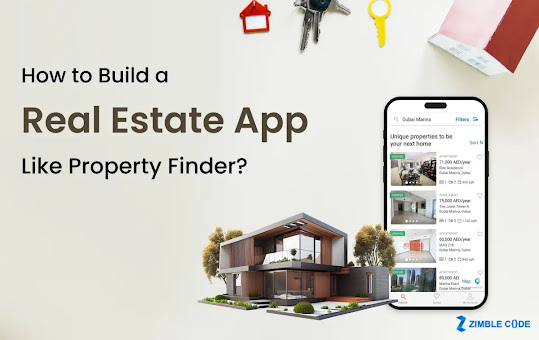How to Build a Real Estate App Like Property Finder?
According to the National Association of Realtors, 76 percent of home buyers now use mobile phones or tablets to search for homes. This is the reason why the market continues to see the emergence of new real estate apps. Notably, 58% of Millennials and 46% of Generation X homebuyers have successfully found their homes through real estate apps like Property Finder.
But is Developing A Real Estate App A Smart Choice?
Well, creating a real estate app from scratch is a compelling idea due to the following reasons:
- Dominance of Mobile Apps: A significant portion of users’ online time is spent using mobile apps. They prefer the convenience and efficiency of apps for various activities.
- Better User Experience: Mobile apps offer faster and smoother experiences tailored for mobile devices, enhancing user satisfaction compared to mobile websites.
- Access to Hardware Features: Apps can leverage a mobile phone’s hardware capabilities; it allows targeted push notifications, camera usage, and even the integration of AR features.
Steps To Develop An App Like Property Finder in 2023
To create a real estate app similar to Property Finder, a meticulous approach to planning, development, and execution is essential. Here’s a step-by-step guide to assist you in building a real estate app:
1. Conduct Market Research:
Begin by conducting comprehensive market research to grasp the target audience, their preferences, and the features offered by competitors. Identify unique selling points and features that can be incorporated into your app.
2. Define Scope and Features:
Based on your research, outline the scope of your real estate app. List crucial features such as property listings, search filters, user profiles, favorites, property details, location maps, and any other additional functionalities you wish to include.
3. Choose the Platform:
Decide whether to develop a native app for iOS or Android or opt for cross-platform development to cover both platforms simultaneously. Check your user preference before selecting the platform.
4. Finalize the Tech Stack:
Next, choose a suitable technology stack that aligns with your app’s requirements. Consider utilizing programming languages, frameworks, and development tools that match your team’s expertise at a trusted real estate app development company in Dubai.
5. Design and User Experience (UX):
A clean and user-friendly interface will significantly enhance the overall user experience. It allows easy property browsing and interaction with the app. You can establish a robust backend system to manage user accounts, property data, searches, and other app functionalities. Also, integrate the backend with a reliable database to ensure data security and swift access.
6. Implement Property Listings and Search:
Stress on robust real estate app development for property listings. Sellers can add their properties, while buyers can search and view properties using various filters. You must also incorporate maps into the app to provide accurate property locations. This feature will help users visualize property proximity to essential amenities and their preferred areas.
7. Incorporate essential features:
Create user profiles to enable buyers and sellers to manage their information, property listings, and preferences. Implement a secure authentication system to safeguard user data. Do not forget to integrate required functionalities like push notifications, saved searches, reviews, ratings, etc. This enhances user engagement and adds credibility to the app, helping future users make informed decisions.
8. Testing and Quality Assurance:
Thoroughly test the app for functionality, usability, and performance. Identify and rectify any bugs or issues before launching the app. Publish your app on the respective app stores and promote it through various marketing channels to reach your target audience effectively.
9. Continuous Improvement:
Continuously monitor user feedback and app usage data to identify areas for improvement. Regularly introduce new features and updates to keep your app competitive and user-friendly.
Remember, developing a real estate app like Property Finder is a multifaceted endeavor that necessitates collaboration between designers, developers, and other stakeholders. Consider seeking professional assistance or partnering with an experienced on-demand app development company to ensure a successful outcome.
Wrapping Up!
Real estate mobile app development is undeniably a fiercely competitive niche, with industry giants like Property Finder defining the landscape. Even with this, you can still enter the race, identifying your target market and providing a tailored solution with the assistance of an app development company like Zimble Code. They can help you establish a position in this dynamic field and give your business a new edge.


Comments
Post a Comment